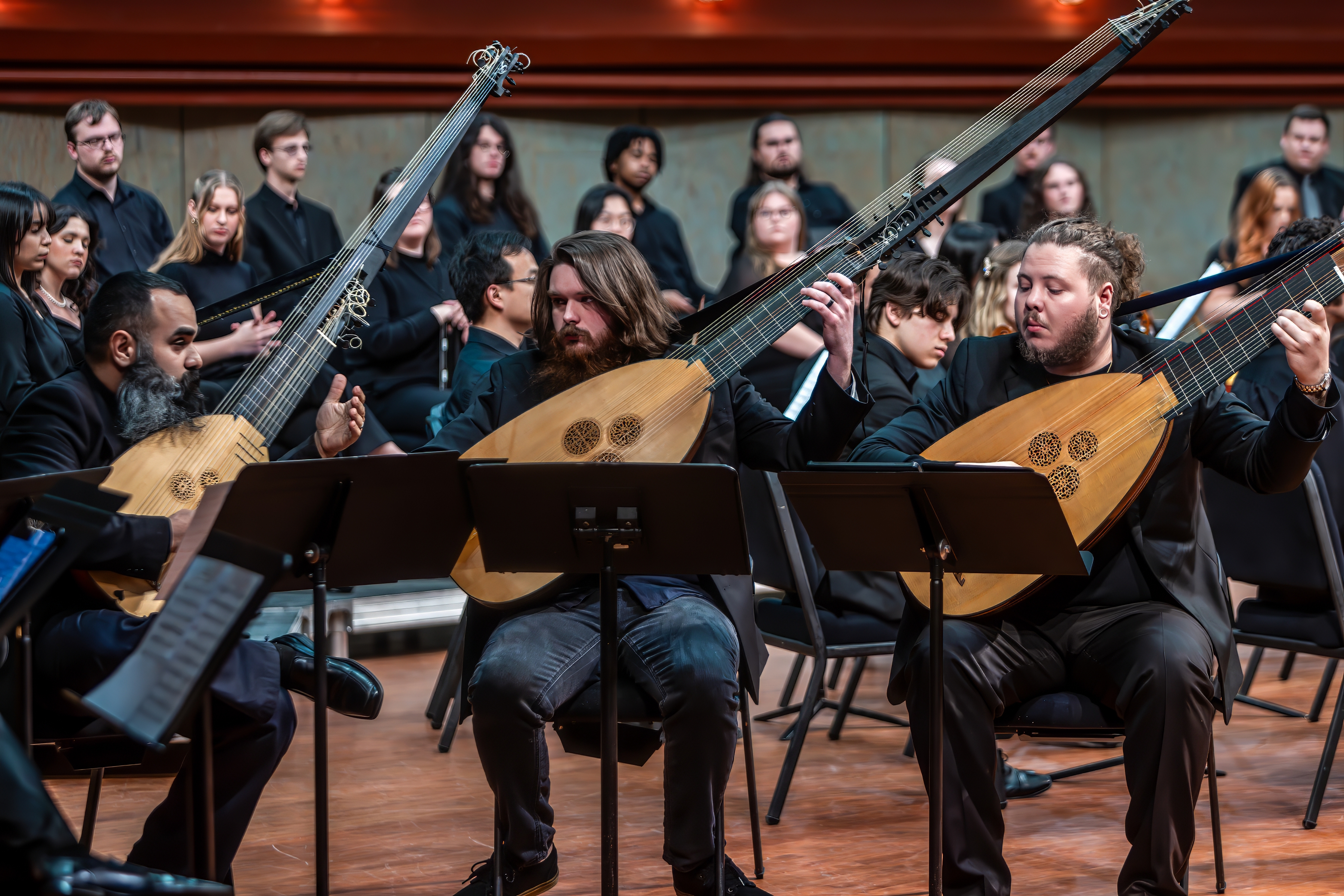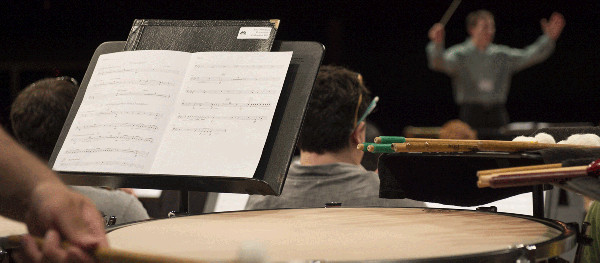(6.1) Development Leave
Development Leave (UNT Policy Manual, section 06.010) is authorized for the primary purpose of increasing the value of the recipient’s sustained contribution to the university by providing them an opportunity for professional growth. Such developmental leaves are not to be understood as deferred compensation, nor are they to be anticipated simply on the basis of longevity at the university, alone. Development leave may be granted, upon application, for study, research, writing, field observations or other suitable purposes. Development leave can be for full-time faculty or staff (including professional librarians) whose duties include teaching, research, administration, or the performance of professional services.
Faculty and staff, as defined in the preceding paragraph, shall be eligible for a development leave if the individual has served the university for at least six consecutive academic years following initial employment or return from a development leave, and the individual is not in the terminal year of employment at UNT.
(6.2) Getty Funding for Special Events
College of Music Getty funds are intended to be used to provide funding assistance in support of special events that are significant in their scope and provide interest across the entire college. In terms of the level of funding, the Getty account funds cannot be depleted to a level below the amount of the most recent gift from the Getty Foundation.
Applications for funding are accepted by the Council of Division Chairs each Fall semester. Funds are awarded by vote of the Council of Division Chairs.
Applicants should be prepared to provide the information below when applying for Getty Funding:
- Name(s) of the guest(s) or event.
- Funding request amount, and any other funding sources available for the project.
- Provide a short biography of the guest(s), if applicable.
- Describe the sessions to be presented at UNT, listing the times, the places, and the significance of the guest(s) or event to the College of Music. Please note that funding priority will be given to those guests or events that will be meeting the needs of the majority of the College of Music student body.
(6.3) University Libraries
The Libraries of the University of North Texas hold major collections of electronic journals, books, and databases. The University Libraries consist of five campus facilities which house approximately six million cataloged holdings including books, periodicals, maps, documents, microforms, audiovisual materials, music scores, full-text journals and books.
Music Library
The UNT Music Library (Willis Library, Fourth Floor) supports the scholarly and performance research needs of the College of Music by collecting and preserving monographs, reference works, periodicals, printed music and sound recording formats, as well as subscribing to electronic databases for research and streaming music. Special collections are a particular strength of the Music Library’s holdings, emphasizing the many genres classified under Western art music and jazz, but also popular music and various sub-genres. Ten full-time staff and around 30 student assistants also provide reference and access services, ensuring that the College of Music and all outside researchers are able to locate and access music materials.
Selected Services
1. Course Reserves
The UNT Libraries holds and distributes course reading materials, including some textbooks, for students as requested by instructors. These materials are placed at a service desk within the libraries or are made available online and can include books, articles, chapters of books, sample tests, videos, CDs, and DVDs.
2. Music Reference Services
UNT Libraries provide reference services in several areas, including music, to help patrons gain access to materials and direction in the use of library materials.
3. Electronic Resources
The UNT Libraries subscribe to many databases to help faculty and students with research and class work; several of these databases are music specific. The resources are web-based, but are not free websites, and cannot be accessed by finding them on search engines. In order to access them, you must click on special URLs that restrict access to the UNT community. Most can be accessed from the UNT Libraries home page.
For information about additional services, visit the Music Library website.
Media Library
The Media Library (Chilton Hall, Room 111) contains the UNT Libraries’ non-print, audiovisual, tabletop games and video games collections. The Media Library also has The Nest, which is an e-sports and game design space. The mission of the UNT Media Library is to support the instructional and research needs of UNT faculty, staff, and students by collecting, maintaining, and providing access to media materials that represent all academic disciplines and all genres of film. A list of services may be found online at the Media Library website.
(6.4) Faculty Information System
The Faculty Information System (FIS) is a web-based faculty productivity tool powered by Digital Measures that is used to collect, manage, and report faculty teaching, research, and service activities, along with other professional accomplishments. All UNT instructors of record have an FIS profile.
(6.5) Office of Research and Innovation
TheOffice of Research and Innovation offers several services to help faculty members pursue funding for research and creative activities both internally and externally. The office houses several entities which oversee research and innovation, research integrity and compliance, grant general grant and contract administration, grant and contract accounting, and information systems.
(6.6) Intramural Seed Funding
Research seed grants are intended as a mechanism to collect preliminary data, conduct pilot studies and/or complete scholarly activities that will facilitate external funding applications by making the applications more competitive during external review.
(6.7) External Funding
External research funding is available from a variety of sources, including government agencies, non-profit organizations, and corporations. Typically, external funding can best be broken down into a few sponsor types.
(6.8) Eminent Professorships
UNT recognizes three Eminent Professorships (UNT Policy Manual, Section 06.015). The University Distinguished Teaching Professorship award recognizes tenured faculty who perform outstanding teaching, teach at the introductory levels of their disciplines, promote the continuous development of teaching excellence, and promote improved teaching among their colleagues in the UNT community. The University Distinguished Research Professorship award recognizes tenured faculty at the rank of professor who have achieved an exceptionally outstanding record of creative activities or research productivity and who demonstrate a record of continued extraordinary productivity. The purpose of the Regents’ Professorship award is to provide recognition and salary support for individuals at the rank of professor who have performed outstanding teaching, research, and service to the profession and to the University of North Texas, and who have achieved a high level of national and international recognition.
(6.9) UNT International Affairs
UNT International Affairs directs and supports the activity of six constituent units: Global Engagement, International Recruitment, International Student and Scholar Services, International Programs and Communication, the Intensive English Language Institute, and Study Abroad. Its mission to support the university’s global endeavors and international initiatives. They support international teaching, research and service in the provision of expertise and assistance to faculty, staff, students and administrators.
(6.10) Summer Workshops
Summer workshops and camps can extend the educational mission of the College of Music to those not usually attending summer school, enhance the image of the school as a provider of innovative and specialized instruction, and serve as recruiting opportunities for future student enrollment. They can also offer summer employment opportunities to music faculty, if financially profitable. Since the faculty, facilities, and reputation of the College will be involved, some oversight in the planning and execution of workshops is required, as well as some return of profits to the College for future workshops. Please note that no money may be paid to UNT faculty until all expenses have been met at the conclusion of the workshop.
It is the policy of the College of Music that scheduled classes have priority over workshops in the scheduling of facilities. Priority amongst workshops is determined by the Dean of the College of Music in consultation with the Associate Deans and is determined by considering a number of criteria including information contained in the workshops’ planning documents with particular emphasis on how the workshop benefits the University, College Division and/or Area.
NOTE: Workshops held on the UNT campus may be subject to a facilities usage tax payable to the University through the Office of Conference and Event Services.
Office of Conference and Event Services
The UNT Division of Student Affairs Office of Conference and Event Services offers on and off campus event management ranging from summer camps to international conferences. This office can arrange meeting and recreational space, housing, dining services, transportation and social events, and all the support services that may be needed for a successful event.
Proposals for New Workshops
Proposals for new summer workshops may be initiated by individual faculty members, areas, divisions and/or administrators of the College of Music. Tentative dates should be cleared and scheduled through the College of Music Office Manager and Scheduling Office. All proposals should be endorsed by the appropriate division faculty members and submitted to the Dean and the Council of Division Chairs for approval. Proposals are due at the beginning of the Spring semester, approximately 18 months prior to the proposed workshop. Proposals can be considered later than this time, but will be subject to space commitments already made.
Planning Documents
The detailed plan, with dates, facilities and equipment requested, and estimated budget of expenses and income should be prepared by the faculty member making the proposal and the Division Chair, in consultation with Office of Conference and Event Services staff. The plan is required of all new and continuing workshops. The final plan should be approved by the Associate Dean for Operations and the Dean of the College of Music. Plans are due at the beginning of the Spring semester, approximately 18 months prior to the proposed workshop.
The plan should include:
1. Detailed request for needed facilities;
2. Estimate of expenses, including publicity and mailing, rental equipment, salaries of outside faculty and temporary help, copying/printing, etc.;
3. Proposed budget including provisions for the assignment of net profits (reserve for future workshops, scholarship fund, Division/College publicity and promotion, instructor fees, etc.);
4. Workshop fee and the number of participants necessary to cover the expense budget;
5. Cut-off date for cancellation if target number is not reached;
6. Contingency plans: cut back on scope and expenses for a smaller number of participants;
7. Extension credit fee for workshops offering college credit;
8. Risk Management compliance plan for all workshops. NOTE: Special requirements must be met for workshops in which participants may be under the age of 18;
9. Housing arrangements with the appropriate number of monitors or dormitory counselors if necessary (coordinated through the Office of Conference and Event Services).
Scheduling Meeting
The Associate Dean for Operations will hold a workshop scheduling meeting at the end of the Spring semester, approximately one year prior to the proposed workshops. All new and continuing workshop organizers are required to attend the scheduling meeting.






